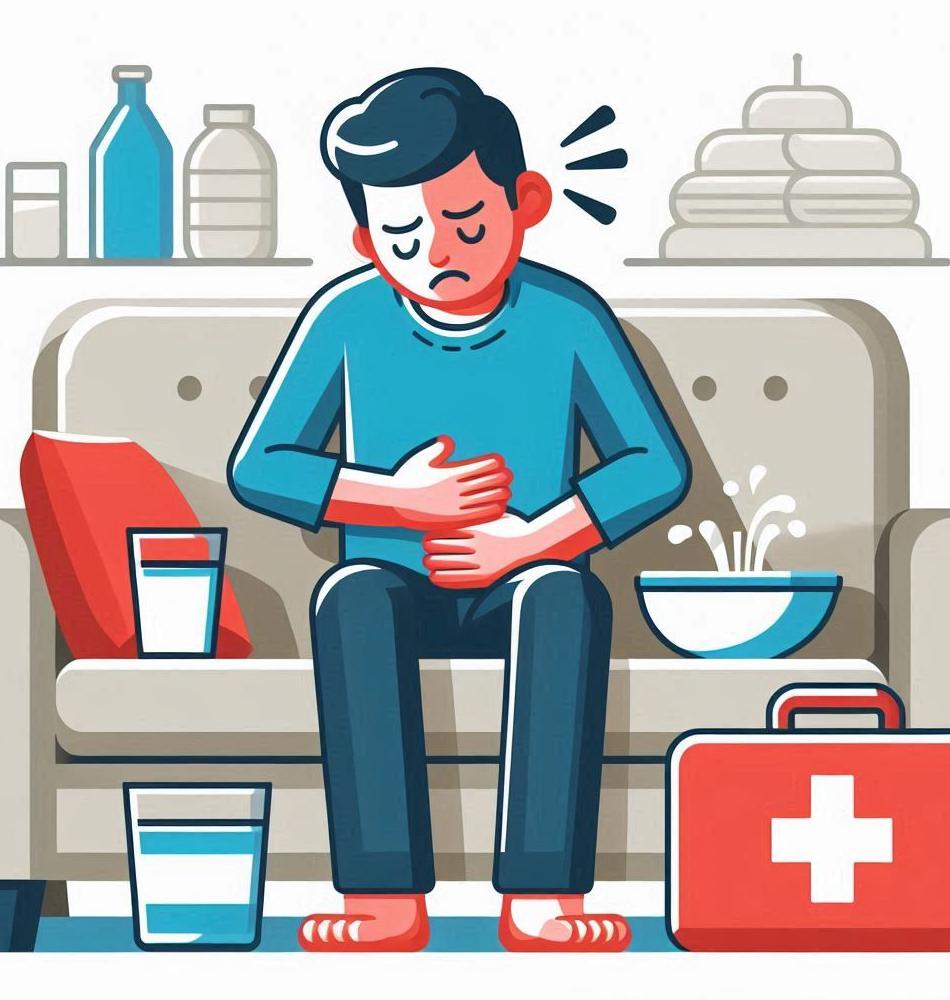Diarrhea and vomiting can be incredibly uncomfortable, often leaving individuals feeling weak and vulnerable. Whether you're traveling or simply experiencing a stomach bug, knowing what to do is essential. Let's delve into the best medicine for diarrhea and vomiting, along with practical advice on managing these symptoms to aid recovery.
Understanding Diarrhea and Vomiting 🔍
Before we rush into treatments, it is important to understand what diarrhea and vomiting signify. They can stem from various causes, including infections, food intolerances, or even stress. Recognizing symptoms can help in identifying the best course of action.
Types of Diarrhea and Vomiting
Not all diarrhea and vomiting are the same. Here is a breakdown of the types:
- Acute diarrhea: Lasts for less than two weeks and often results from infections.
- Chronic diarrhea: Persists for more than four weeks and may indicate a more serious condition.
- Non-specific vomiting: Can occur due to various reasons, including viral gastroenteritis.
- Projectile vomiting: Often associated with severe conditions that may require medical attention.
When to Seek Medical Attention 🚑
While many cases of diarrhea and vomiting can be treated at home, there are certain red flags indicating that you need to see a doctor.
Signs that Require Immediate Medical Attention
- Severe dehydration signs like dry mouth and significant thirst
- Blood in vomit or stool
- High fever over 101°F
- Severe abdominal pain that doesn't go away
- Vomiting lasts more than two days
Over-the-Counter Medications for Diarrhea and Vomiting 🏥
When it comes to treating diarrhea and vomiting at home, several over-the-counter medications can be effective. Here are some common options:
Medications for Diarrhea
- Loperamide: This medication slows down gut movement, making it suitable for mild, non-infectious diarrhea.
- Bismuth subsalicylate: Often recognized by its brand name Pepto-Bismol, it can relieve both diarrhea and nausea.
Medications for Vomiting
- Meclizine: Effective for motion sickness and can help with nausea and vomiting.
- Dimenhydrinate: Often used for travel sickness, it can be beneficial for nausea and vomiting.
Home Remedies and Natural Treatments 🌱
Sometimes, conventional medicine may not be readily available, or individuals might prefer more natural remedies. Here are some options to consider:
Rehydration Solutions
Staying hydrated is vital when coping with diarrhea and vomiting. Here are some home remedies:
- Mix one liter of water with six teaspoons of sugar and half a teaspoon of salt to create a homemade oral rehydration solution.
- Drink clear broths, herbal teas, or electrolyte-rich sports drinks.
Ginger and Peppermint
Both ginger and peppermint have been recognized for their soothing properties. Consider these remedies:
- Ginger tea can help reduce nausea and vomiting.
- Peppermint tea may relax the digestive tract and relieve discomfort.
Dietary Tips to Consider 🍏
As you recover, it’s important to consider what to eat. Certain foods can be beneficial, while others can exacerbate symptoms.
Foods to Eat
- Bananas
- Rice
- Applesauce
- Toast
Foods to Avoid
- Dairy products
- Fatty foods
- High-fiber foods
- Spicy foods
Frequently Asked Questions about Diarrhea and Vomiting ❓
- What is the best over-the-counter medicine for diarrhea and vomiting?
- How long should I wait before seeking medical attention?
- Can I drink coffee if I have diarrhea or vomiting?
- Is it safe to use herbal remedies alongside medications?
- How can I prevent dehydration when experiencing these symptoms?
Final Thoughts 🌟
Dealing with diarrhea and vomiting can be challenging, but understanding the best medicine and home remedies can make a difference in your recovery. Remember, it’s always a good idea to consult with a healthcare professional if you're unsure or if symptoms persist. Take care of your body, stay hydrated, and allow yourself time to heal.


